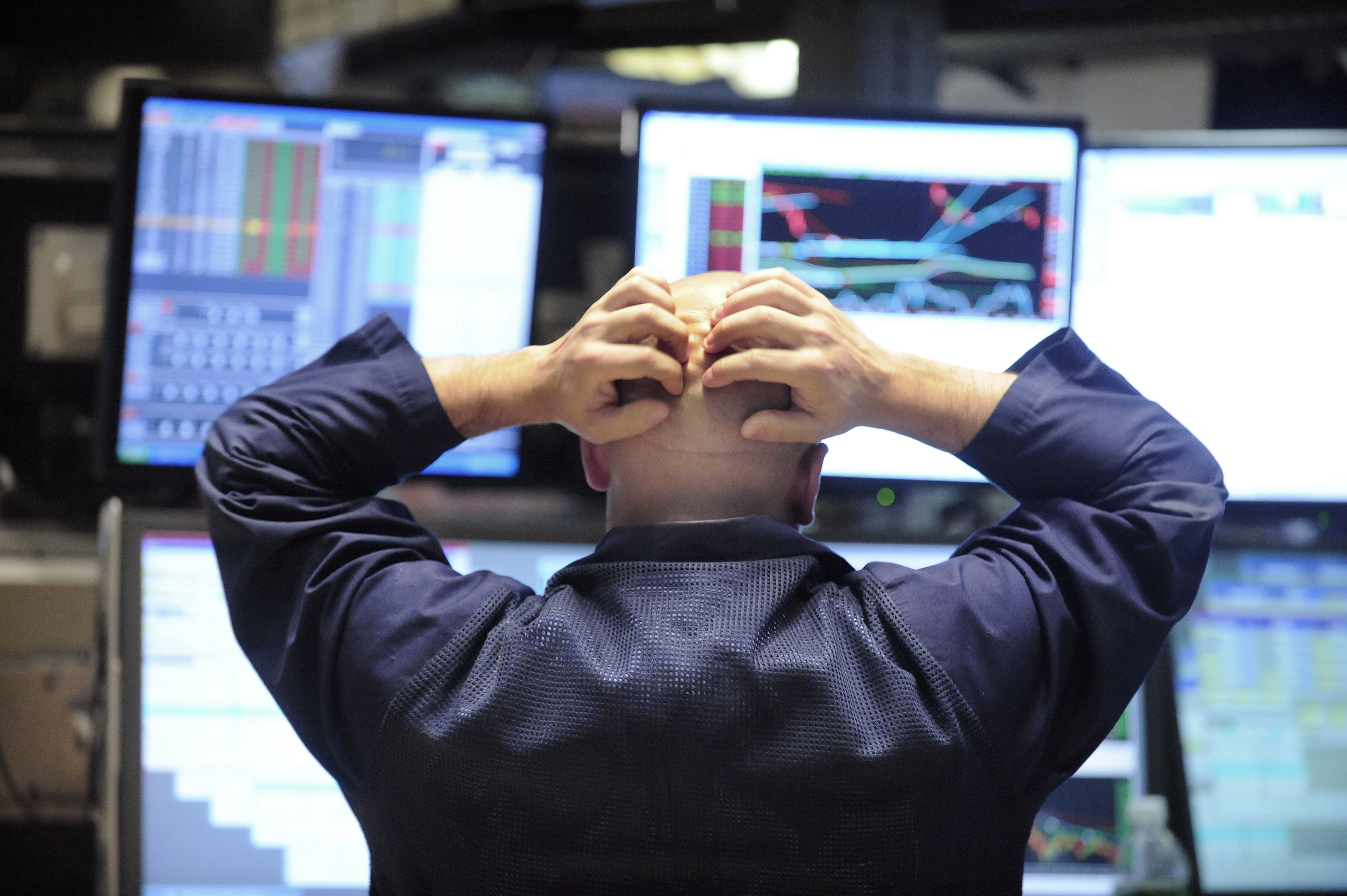What worries Wall Street
U.S. markets rang in the new trading year with a belly flop. Is more bad news on the horizon?

A free daily email with the biggest news stories of the day – and the best features from TheWeek.com
You are now subscribed
Your newsletter sign-up was successful
The smartest insight and analysis on Wall Street's new year, from all perspectives, rounded up from around the web:
"So much for a fresh start on Wall Street after a lackluster 2015," said Adam Shell at USA Today. U.S. markets rang in the new trading year with a belly flop, with the Dow Jones industrial average posting its biggest opening-day loss since 2008. Global stocks also plunged amid "fresh signs of slowing growth in China" and weak U.S. manufacturing data, before trimming their losses later in the week. Normally, data like that wouldn't lead to such a rout, said Matt Phillips at Quartz. China's economic slowdown is "old, old news," and "it's fair to assume that low oil prices are weakening the U.S. manufacturing sector." But after a disappointing 2015 — the S&P 500 ended the year down 0.7 percent, its first annual decline since the financial crisis — Wall Street wanted, needed a dose of good news to kick off the year. Already, signals for 2016 "don't look so hot."
What's odd is that by most measures the U.S. economy remains in pretty good shape, said Alain Sherter at CBS News. Unemployment is down to 5 percent, consumer confidence is up, and the Federal Reserve trusts the recovery enough to have raised interest rates in December for the first time since 2006. But "some experts see danger on the horizon." Citigroup's Citi Research puts the probability of the U.S. slipping into a recession at 65 percent this year. That's partly based on historical data: The odds of an economic downturn increase to 50 percent roughly five years into a recovery, and we're into year seven. Threatening economic headwinds, not the least of which is the slowdown in China, could yet "batter the fragile U.S. recovery into submission."
The Week
Escape your echo chamber. Get the facts behind the news, plus analysis from multiple perspectives.

Sign up for The Week's Free Newsletters
From our morning news briefing to a weekly Good News Newsletter, get the best of The Week delivered directly to your inbox.
From our morning news briefing to a weekly Good News Newsletter, get the best of The Week delivered directly to your inbox.
Plenty could go wrong, said Caroline Valetkevitch at Reuters. Corporate earnings growth was flat last year, leading to concerns that profits may further stumble in 2016. A strong dollar might "keep inflicting pain" on manufacturers by crimping sales of U.S. goods overseas. The Federal Reserve might "get aggressive" and raise interest rates too fast, upsetting already nervous markets. The price of oil might stay low, wreaking more havoc in the energy market. And though cheap gasoline has put more money in consumers' pockets, they appear to be saving it rather than spending it. Then there are the big geopolitical unknowns that could truly roil markets, like a major terrorist attack or the election of a fringe U.S. presidential candidate.
Despite the dour mood, some Wall Street prognosticators remain optimistic, said Steven Russolillo at The Wall Street Journal. A group of Wall Street strategists tracked by research firm Birinyi Associates expects the S&P 500 to rebound and gain, on average, about 8 percent this year. That said, the only thing that's certain is that most market predictions "aren't worth the paper they are written on." Since 2000, the S&P has returned a 4 percent average annual gain, even though Birinyi's Wall Street strategists have predicted 10 percent yearly returns. Another study of some 6,500 forecasts by "so-called market gurus" found that fewer than half of these experts correctly predicted the S&P 500 performance more than 50 percent of the time. The takeaway: "Take Wall Street's collective wisdom, and expect something different."
A free daily email with the biggest news stories of the day – and the best features from TheWeek.com
-
 Sepsis ‘breakthrough’: the world’s first targeted treatment?
Sepsis ‘breakthrough’: the world’s first targeted treatment?The Explainer New drug could reverse effects of sepsis, rather than trying to treat infection with antibiotics
-
 James Van Der Beek obituary: fresh-faced Dawson’s Creek star
James Van Der Beek obituary: fresh-faced Dawson’s Creek starIn The Spotlight Van Der Beek fronted one of the most successful teen dramas of the 90s – but his Dawson fame proved a double-edged sword
-
 Is Andrew’s arrest the end for the monarchy?
Is Andrew’s arrest the end for the monarchy?Today's Big Question The King has distanced the royal family from his disgraced brother but critics claim a ‘fit of revolutionary disgust’ could still wipe them out